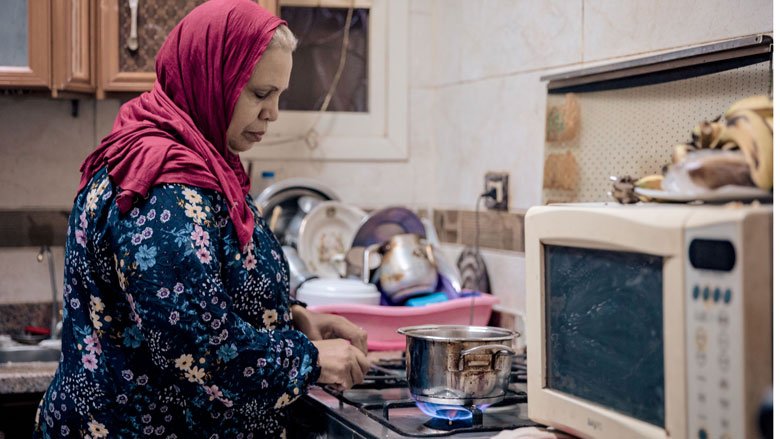Challenge
Egypt experienced an energy crisis since 2011. Imported and subsidized liquefied petroleum gas (LPG) burdened the national budget and foreign currency reserves, leading to market shortages and to the emergence of a black market. Locally produced gas is cheaper but requires huge upfront investments by the government and international oil companies. However, the Egyptian gas market lacked governance and proper structure to be capable of attracting private sector investments, and Egyptian Natural Gas Holding Company (EGAS) financial management system was obsolete, impacting its operational performance and hindering exploration and production investments. Moreover, poor citizens were not able to afford the required connection fees.
Approach
The World Bank, in coordination with the Agence Fracaise De Development AFD and the European Union (EU), secured financing to construct gas networks in Egypt and to design and implement the targeting mechanism for poor customers to benefit from the EU grant subsidizing their connection fees. The network was extended to new governorates for the first time and covered many rural areas.
In addition, the project financed the establishment of a Financial Management Information System in the gas holding company, which was further expanded during implementation to a full-fledged Enterprise Resource Planning (ERP) system and was a stepping stone in implementing it in other sector companies as a main feature of the sector digital transformation.
Results
The project contributed to (a) increasing affordable and reliable energy access to 2.25 million households (b) improving customer safety and convenience, and (c) enhancing the sector’s governance and financial sustainability to attract foreign direct investment to expand energy local production of gas, contributing to the objectives of the Country Partnership Framework for 2015-19.
Between 2014 and 2022, the project achieved the following results:
- 2.25 million households, (over 10 million beneficiaries), 50 percent of which are women, connected to gas supply
- 8,594 kilometers of networks and 28 pressure reduction stations were constructed
- 282,000 poor customers supported to pay connection fees
- Established the Egyptian Gas Regulatory Authority; to regulate the gas market
- Established the ERP system in Egyptian Natural Gas Holding Company (EGAS) to ensure transparency and enable fiscal consolidation of the gas sector
- Trained 158 staff from the Local Distribution Companies
Bank Group Contribution
The project was funded by a $300 million loan from the World Bank.
Partners
The project benefited from a loan from the AFD in the amount of EUR 70 million, and from a grant from the EU for EUR 68 million. The Government of Egypt also provided $459 million in financing. The Ministry of Petroleum and Mineral Resources, the Egyptian Natural Gas holding Company, three local distribution companies (Town Gas, Egypt Gas, and Modern Gas which is a merger of the formerly REGAS and Sinai gas), and the Egyptian Gas Regulatory Authority were key partners in the project’s implementation. The project established a Project Management Unit to ensure close co-ordination and communication with all stakeholders in achieving project outcomes.
Looking Ahead
Building on the successful implementation of the project the national rate of connection was increased from 700 thousand households annually in 2014 to 1.2 million in 2022. The benefits realized in connecting rural areas guided the government’s strategies to include gas connections in the nation-wide Hayah Karima development program improving services to the disadvantaged regions.
The project’s provision of connection fee payments to citizens encouraged the government to provide zero-interest instalment payment scheme to enable access to all income categories.
The capacity building of the sector in various aspects will be reflected in future connection projects, including the connection annual rate, the adoption of the environmental and social safeguards in all connection projects, with social departments established in the local distribution companies.
